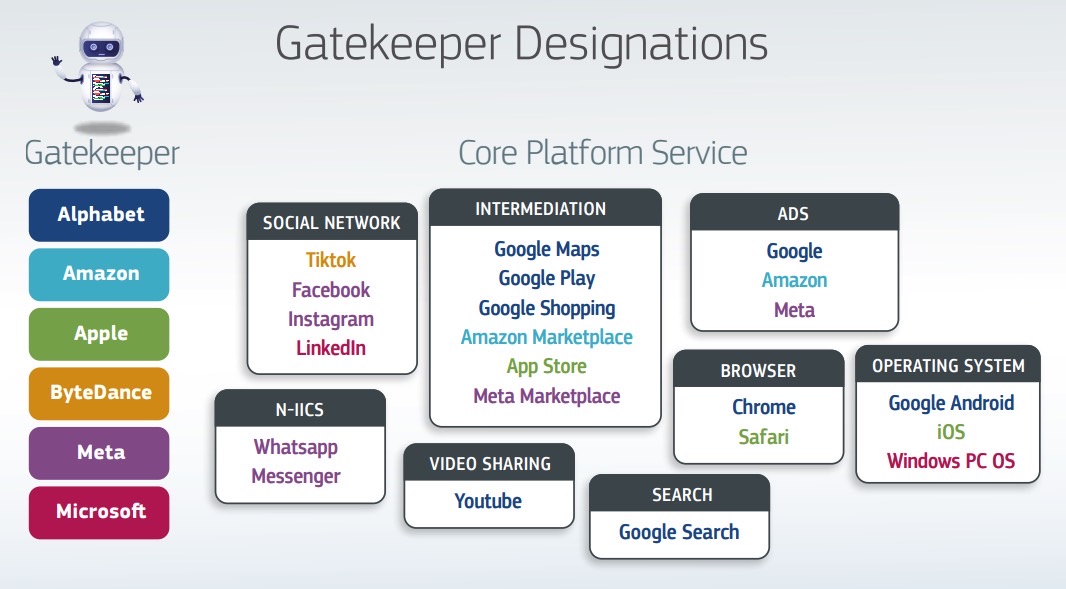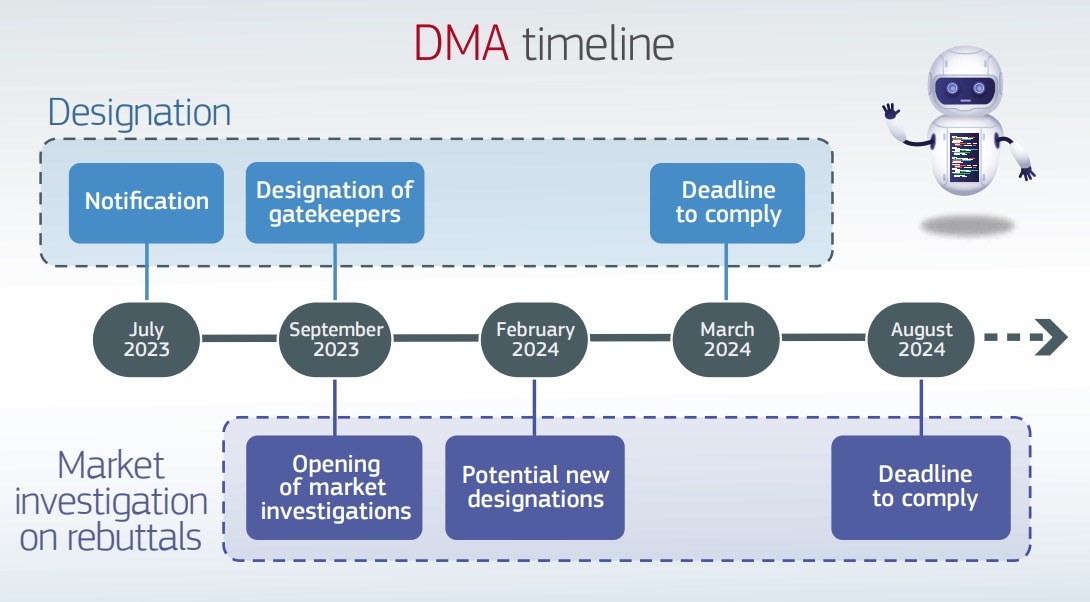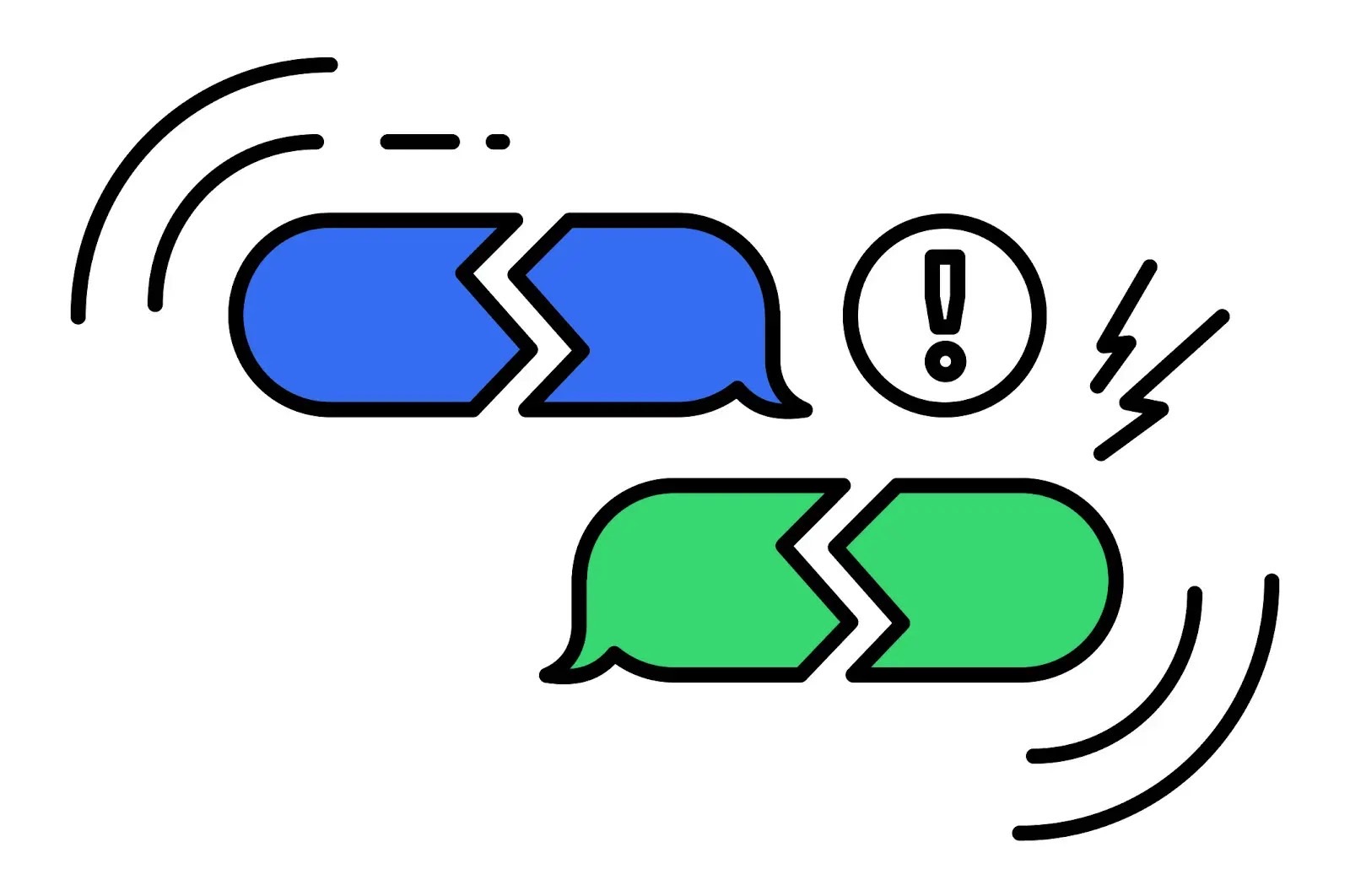Google has once again advertised the weakness of Android by begging Apple to enable RCS support in iMessage, a key feature of the iPhone. But Google is making a big fuss about something that’s not a problem in most parts of the world. As I explained, RCS support in iMessage (or WhatsApp, for that matter) would only bring unnecessary confusion.
I’ve never had an instance where a friend or family member couldn’t get in touch with me via chat apps. But then WhatsApp is king in Europe, and even some of my iPhone-using contacts prefer it over iMessage.
The only way RCS comes to iPhone via iMessage support is if regulators force Apple to comply. The only regulator in the world with the power to do so right now is the European Union (EU), thanks to its Digital Markets Act (DMA) law.
But the EU has just designated its gatekeepers under DMA, and iMessage isn’t one of them. Not yet, at least. Therefore, Apple doesn’t have to open iMessage to RCS like WhatsApp would.
With all that in mind, those who hope that RCS will make it into iMessage need to know that even the EU can’t force Apple to deliver a full RCS experience in iMessage. That, even if it did, the interoperability could be regional, just like iOS 17 sideloading will be. And that finally, that gatekeeper designator has to be renewed, which means RCS support can always disappear.
Still, thanks to the EU’s new regulation, I have an idea of how long it’ll take for RCS support to show up in iMessage and how long it’ll take.
Gatekeeper designator
I’ll remind you again what helps the EU decide whether a company and/or service is a gatekeeper in the region:
(i) when the company achieves a certain annual turnover in the European Economic Area, and it provides a core platform service in at least three EU Member States;
(ii) when the company provides a core platform service to more than 45 million monthly active end users established or located in the EU and to more than 10,000 yearly active business users established in the EU;
(iii) when the company met the second criterion during the last three years.
Under these rules, Apple’s iOS, App Store, and Safari are gatekeepers. But iMessage isn’t, as the EU will investigate Apple’s chat platform until February 2024.
Chat apps like WhatsApp and Messenger are gatekeepers, and I’m mentioning the Meta chat apps because they’re direct rivals to Apple’s iMessage.

How Apple would bring RCS support to iMessage
But say the EU decided next February that iMessage is a gatekeeper, and therefore, it has to work with competing services, whether it’s RCS or something else.
Apple would then have until August 2024 to comply and implement interoperability support. Meta is doing it with WhatsApp already, but its deadline is March 2024.
In such a scenario, iMessage would have to work with those rival chat apps as long as the rivals ask Apple for support. Google would undoubtedly do it. Importantly, interoperability would work only if users choose it. I already explained I don’t want such confusion in my instant chat app experience.
That is, I don’t want troubleshoot iMessage and/or RCS issues for anyone in the family. I’d most certainly turn off RCS support. And I’m fairly certain Apple would have a way to disable the feature in the app for the simple reason that interoperability in the EU doesn’t mean interoperability in the entire world — more on that later.
As for the way RCS support would be implemented well, the EU offers the following guidelines:
Some basic functionalities have to be made available for interoperability within six months from the designation of the gatekeeper, (e.g. text messages between two individual users), more complex ones will be introduced gradually and have to be made available after two years (e.g. group text messages) or four years (e.g. audio and video calls between two individual users or groups of end users) from the moment of designation.
At the very best, you’d get RCS support for two-way iMessage chats by August 2024. It’ll be even later if the EU deems iMessage as a gatekeeper well after February 2024.
Then, Apple has two years to bring more complex RCS features to iMessage. Like rich group text messages. In the best-case scenario, that gives you an August 2026 deadline.

RCS support could be limited to the EU
Apple will undoubtedly adhere to the EU rules, but not without protest. And when iMessage becomes a gatekeeper service, it’ll probably do only the minimum required.
The current gatekeeper designations have already scored a win for those protesting Apple’s App Store rules. iOS 17 will almost certainly support sideloading by March 2024 alongside third-party app stores and payment systems. But these features will be available only locally, in the EU.
This isn’t like USB-C. Apple could have made USB-C iPhones only for Europe, but that would have been an expensive manufacturing hassle. With software, it’s different. Apple won’t have to deploy features worldwide just because the EU demands them locally. It might be a pain for Apple’s software developers, but interoperability for iMessage might be limited to the EU, just like sideloading.
Software changes are reversible
Come February 2024, we’ll learn whether the EU has deemed iMessage a gatekeeper. If Apple wins, then it’ll have no reason to comply. If iMessage becomes a gatekeeper, the designation will stay in place for at least three years. That’s because these designations will not be permanent. The EU will have to update its gatekeeper list continuously. Some companies/services will be added; others will be removed.
Consider this scenario: iMessage becomes a gatekeeper service in February 2024, but by 2027, it fails to meet the criteria above. Maybe the addition of RCS ruins iMessage so much in Europe that iPhone users abandon it in droves.
In such a case, iMessage could lose its gatekeeper status. And Apple would be able to disable RCS support. With a kill switch. The same switch that I said earlier I’d want in iMessage to prevent interoperability on my device.

By the way, this conversation applies to any instant messaging app that becomes a gatekeeper in the EU. I don’t want RCS support in WhatsApp or any other app. Or the other way around. Of all the DMA requirements, the EU’s rules for chat apps annoy me the most as a European. I don’t appreciate mixing chat experiences. Instead, I prefer standalone apps for each chat app.
This is all speculation, of course. But it’s based on the EU’s DMA regulations. We’ll see how everything unfolds in the coming months. By March 2024, we’ll witness iOS 17 sideloading support and WhatsApp interoperability.







